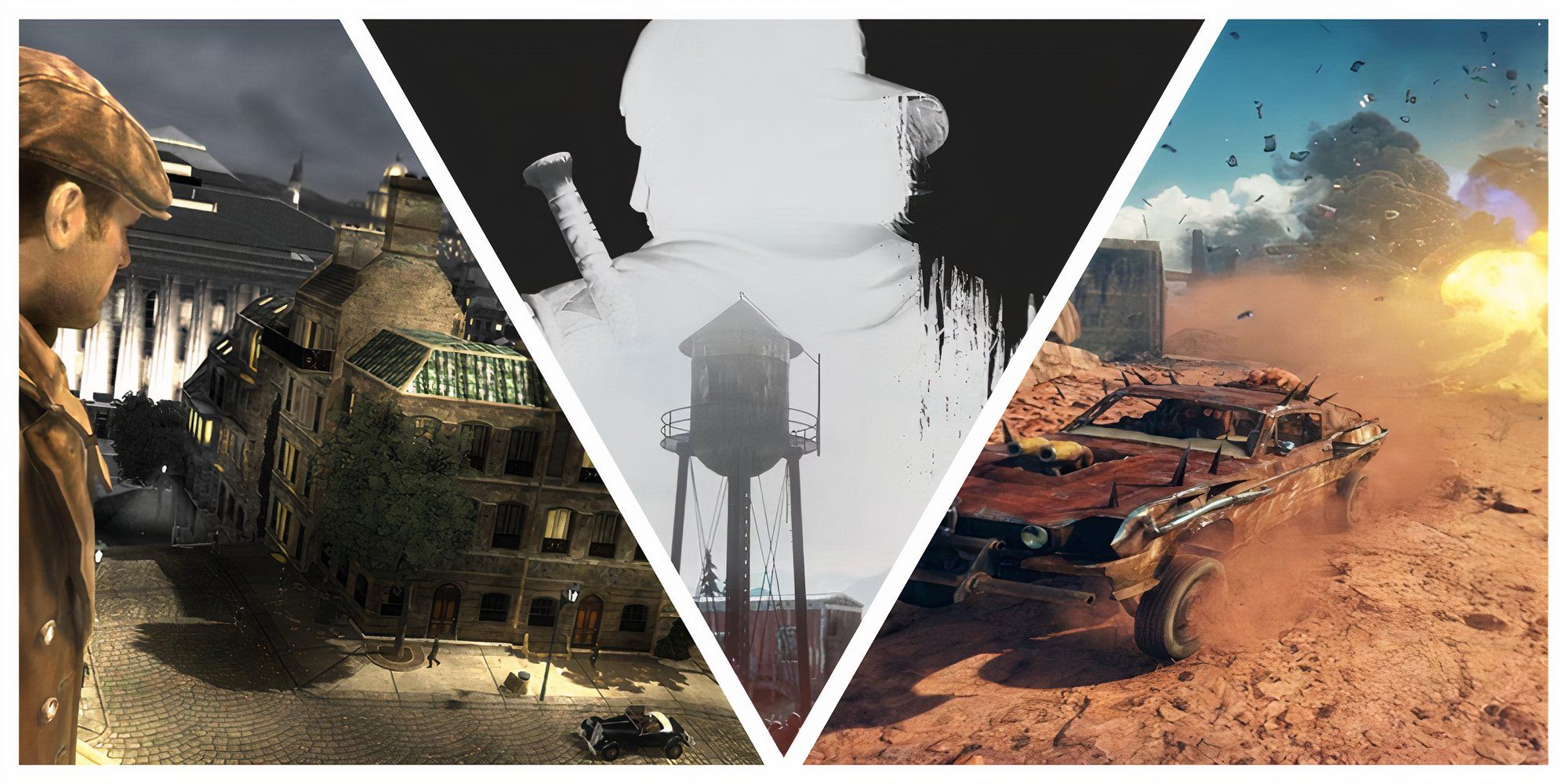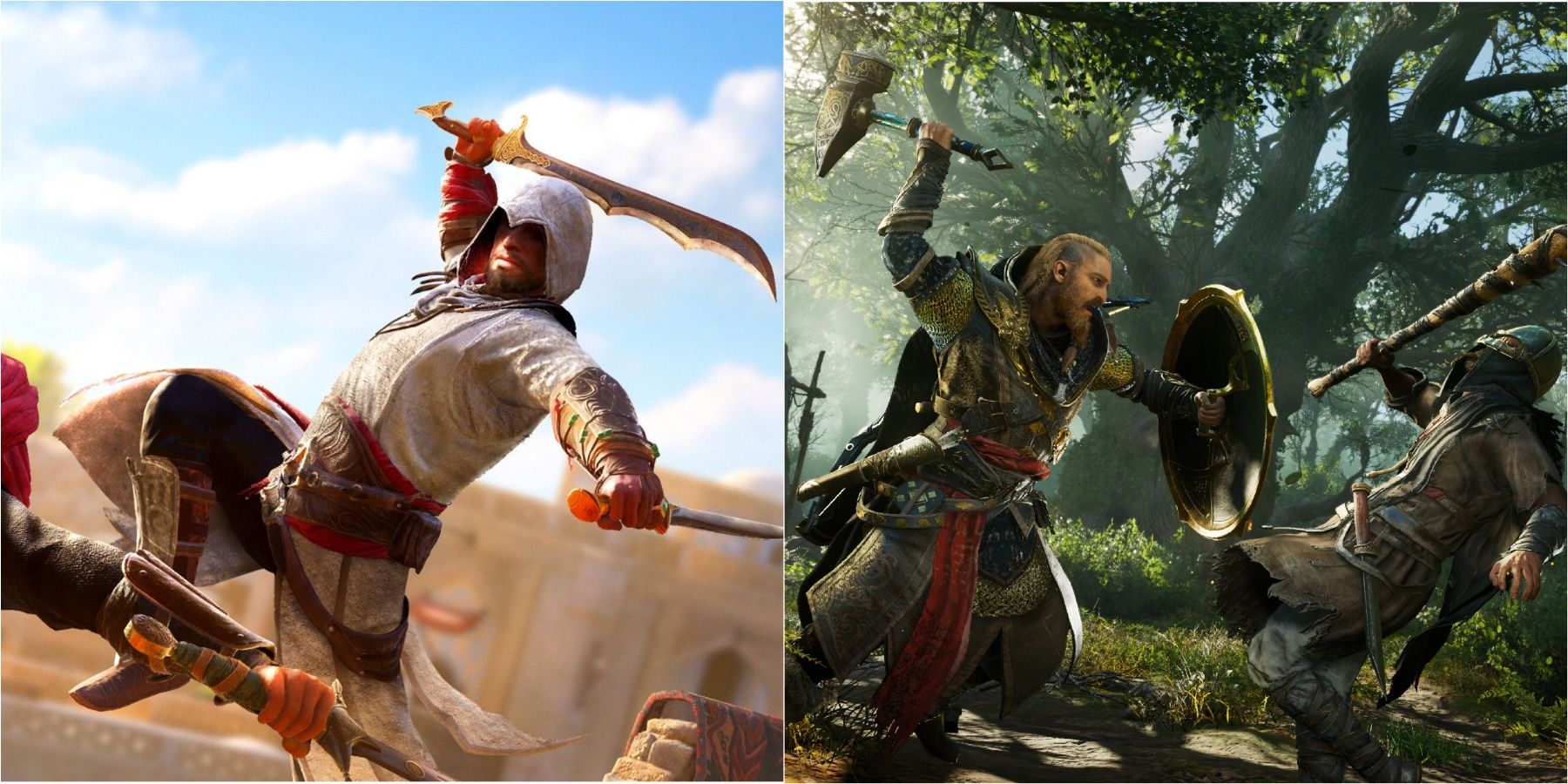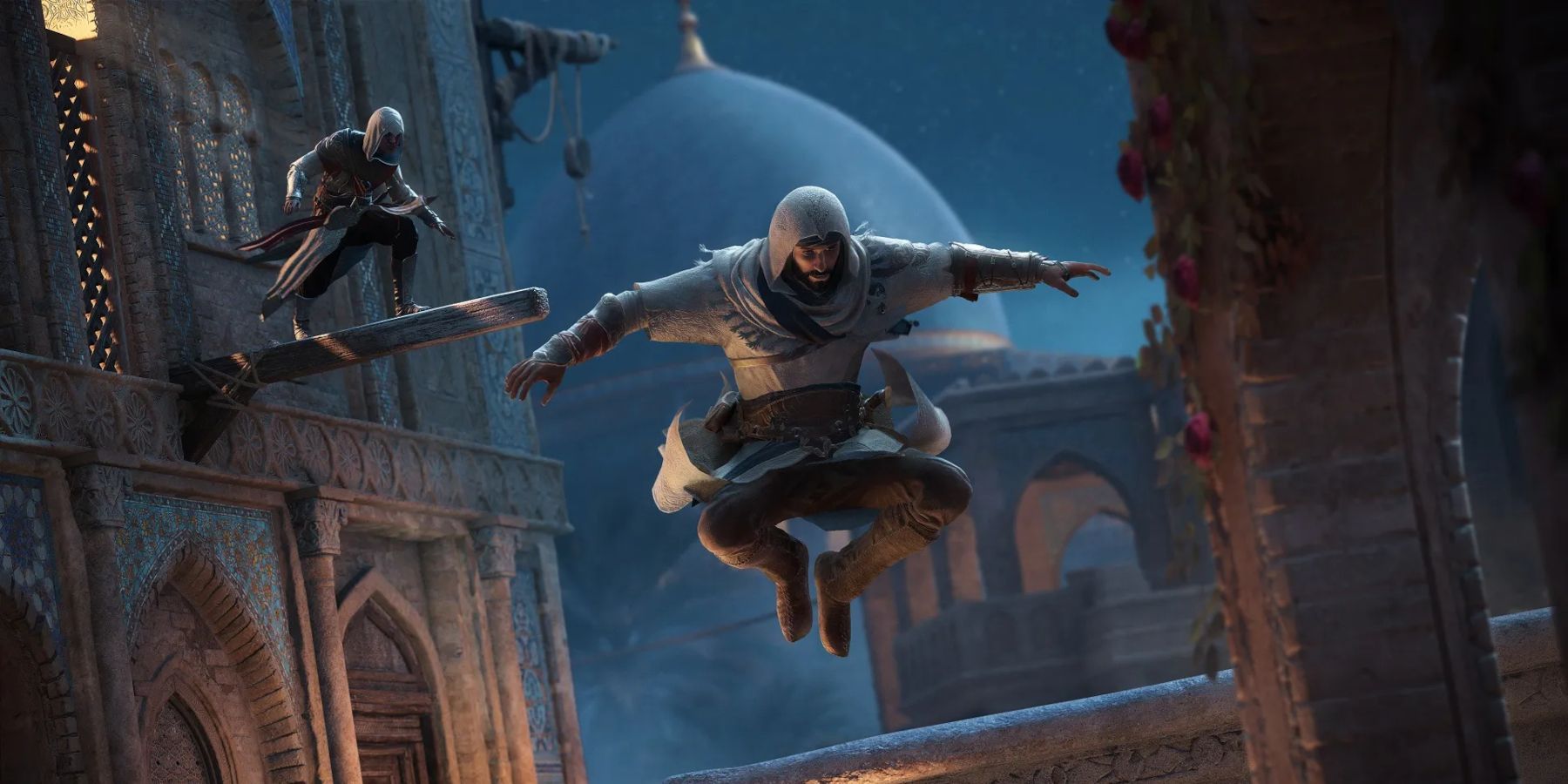For a franchise that's lasted for 16 years now, Assassin's Creed has seen a surprisingly low number of changes over its lifetime. Practically nailing the formula right out of the gate, Assassin's Creed remained largely the same for about a decade, with Assassin's Creed 2, Brotherhood, Revelations, 3, Black Flag, Rogue, Unity, and Syndicate all using generally the same formula, albeit with a few tweaks and additions for each new entry. But after years of the same gameplay just with a different setting, fans were growing tired of the franchise, and that's when Ubisoft decided to take the Assassin's Creed series in a new direction.
2017's Assassin's Creed Origins marked a new phase for the long-running action-adventure franchise, incorporating more RPG elements and giving everything a much grander scale. This is the formula Assassin's Creed has stuck to ever since, but once again, history has repeated itself and fans are starting to get sick of the same old formula. Enter Assassin's Creed Mirage, Ubisoft's next entry, and apparently the return to basics that fans have been asking for. But the more fans are seeing of Mirage, the more it seems as though Assassin's Creed Valhalla is holding it back.
Assassin's Creed Valhalla's Mechanics Could Be Hurting Assassin's Creed Mirage
Ever since its first reveal back in September 2022, Ubisoft has marketed Assassin's Creed Mirage as a smaller-scale throwback entry that's been heavily inspired by games from Assassin's Creed's first formula phase, namely the original 2007 game that started it all. For a while, it looked as though Assassin's Creed Mirage would be the return to basics that many fans desired, with more of a focus on narrative, parkour, and stealth. But as fans get closer to that October 2023 release date and see more gameplay, the more it starts to look just like Assassin's Creed Valhalla again, but with half of the mechanics ripped out.
Using the same Ubisoft Anvil engine as Assassin's Creed Valhalla, a good deal of Assassin's Creed Mirage's animations and mechanics look eerily similar to those found in its predecessor. While this isn't necessarily a bad thing, with sequels like God of War Ragnarok and Marvel's Spider-Man 2 looking very similar to their predecessors, it does mean that Assassin's Creed Mirage could fall into some big traps when it comes to one of the game's most anticipated features: its parkour.
Assassin's Creed Valhalla's parkour was fairly sluggish and simple, with the player having limited options in how they approach the actual act of climbing. However, this wasn't a huge issue in Valhalla as the vast majority of its gigantic open-world map was filled with open plains and empty spaces, meaning that players used parkour much less frequently than in previous games in the franchise.
According to Ubisoft, one of the core pillars of Assassin's Creed Mirage is its parkour, and with it running on Valhalla's engine, it might not meet fan expectations. From what fans have seen so far, Mirage's parkour looks quite slow, and seems to have very few animation cycles for climbing and jumping across obstacles. Ubisoft has also confirmed that Assassin's Creed Mirage will have no wall side or back ejects, meaning that players won't be able to carry their momentum while climbing. Though casual Assassin's Creed players likely won't notice too much of a difference, veteran Assassin's Creed fans will likely be very disappointed with the lack of parkour actions available in Mirage, and if the rest of the game is held back similarly by Assassin's Creed Valhalla's mechanics, then it might not be the return to form fans were hoping for.
Assassin's Creed Mirage is set to release on October 12 for PC, PS4, PS5, Xbox One, and Xbox Series X/S.





